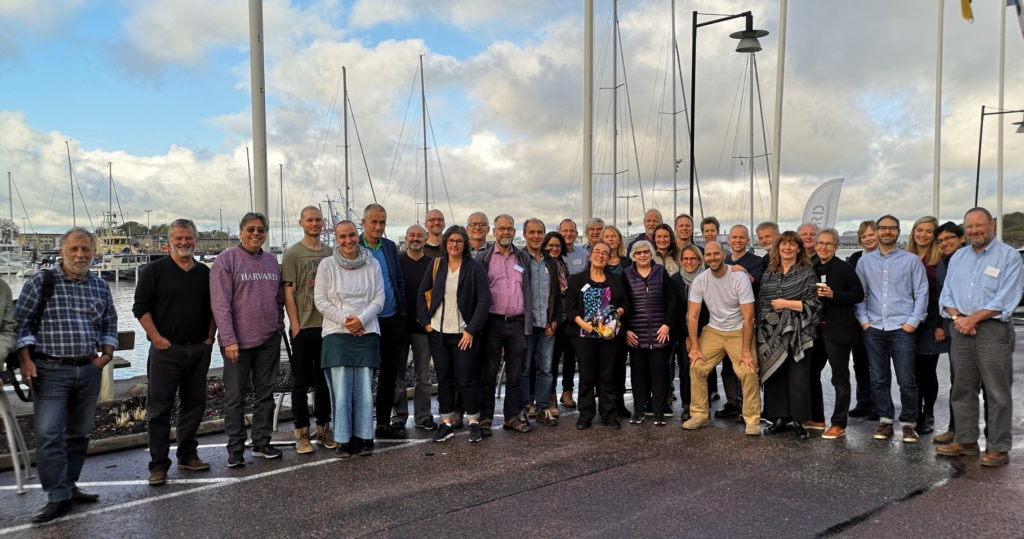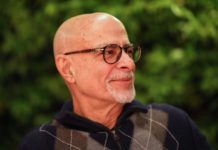This week on MIA Radio we turn our attention to psychiatric drug withdrawal and in particular the work of the International Institute for Psychiatric Drug Withdrawal.
The Institute recently held a network meeting in Gothenburg, Sweden, where 40 leading experts from around the world came together to discuss the issues of dependence, withdrawal and iatrogenic harm relating to psychiatric drugs. The meeting participants included both professionals and those with lived experience.
We chat with IIPDW founder Carina Håkansson and IIPDW Board Member Professor John Read.
Following the meeting, the IIPDW released the following Press Release.
INTERNATIONAL EXPERTS CALL FOR SERVICES TO SUPPORT MILLIONS TRYING TO COME OFF PSYCHIATRIC DRUGS
Millions of people around the world are currently trying to come off psychiatric drugs but finding it extremely difficult because of withdrawal effects which are often severe and persistent, and because there is so little support available to come off the drugs slowly and safely.
The 40 international experts attending this weekend’s meeting (end of September 2019) of the International Institute for Psychiatric Drug Withdrawal (www.iipdw.org) voted to endorse the recommendations of the recent Public Health England [PHE] review of ‘Dependence and withdrawal associated with prescribed medicines’ and pledged to try to implement them in the 15 countries they are from, and beyond. These include:
- Enhancing clinical guidance and the likelihood it will be followed.
- Improving information for patients and carers on prescribed medicines, and increasing informed choice and shared decision-making between clinicians and patients.
- Improving the support available from the healthcare system for patients experiencing dependence on, or withdrawal from, prescribed medicines.
- Further research on the prevention and treatment of dependence on, and withdrawal from, prescribed medicines.
Participants agreed that besides antidepressants and benzodiazepines other psychoactive drugs, e.g. antipsychotics, should be included. They also agreed with PHE that ‘the goal is to make sure that our healthcare system builds awareness and enhanced decision-making for better patient treatment and support. These recommendations are just the beginning. All parts of the healthcare system and the general population will need to engage with this complex problem and work together to find solutions’.
The meeting decided to hold a large international conference in Iceland in 2020.
The meeting organiser, Dr Carina Håkansson (Psychotherapist, Sweden), commented:
‘All our hopes were exceeded. So many plans, local and international, emerged from this gathering of inspirational experts and activists. The time for change on this issue has clearly arrived’ [email protected]
Participants commented:
‘Psychiatric drugs destroyed 10 years of my life. I am so happy that we are finally addressing this issue of how to get off these drugs, which effects literally millions of people.’ Olga Runciman, Denmark (Psychologist, IIPDW Board Member) +45 27851003, [email protected]
‘Doctors should be able to prescribe the tapering medication strips I demonstrated at the meeting, which are required to stop safely. This is crucially important’. Dr Peter Groot, Netherlands (UMC University Hospital, Utrecht) +31 622290233 [email protected]
‘As an NHS Psychiatrist, I am aware how many lives are ruined by over-medication. We need to recognise that there are alternatives which are more powerful and less harmful.’ Dr Rex Haigh, UK (Berkshire) +44 7768 546983 [email protected]
‘The strong commitment all weekend, from researchers, clinicians and people with experience of psychiatric drugs was inspiring. The denying and minimizing of psychiatry and the drug companies will no longer prevail’. Professor John Read, UK (University of East London, IIPDW Board Member) +44 7944 853 783 [email protected]
“I return to Brazil with a willingness to help the process of psychiatric reform in my country vigorously address the damage that the alliance between psychiatry and the pharmaceutical industry has done to our population.” Professor Fernando Freitas (FIOCRUZ, Member of IIPDW Faculty) + 55 21 2260 9200 [email protected]
















This is a Much Needed International Institute
THE ORIGINAL EFFECTS OF THE DRUGS
I think it makes sense that if a person regularly consumes a psychotropic drug, that the drug becomes part of the persons ‘Mental Balance’, and if the drug is abprubtly withdrawn that the persons System can imbalance.
I think it also makes sense that if a psychotropic drug is carefully withdrawn, a person is far less likely to run into trouble, as they can see where they are going at any given stage.
MY EXPERIENCE
I stopped taking my Long Acting Neuroleptic Injection in 1984 because of its Suicidal and Disabling (Akathisia) side effects and made Complete Genuine Longterm Recovery as a result.
I was initially given permission to ‘abprubtly’ withdraw from the Long Acting Neuroleptic Injection in 1983, but I didn’t last long. I checked myself into hospital after a short length of time and ended up back on the injection.
After a number of further hospitalizations a suicide attempt (and a near suicide), I decided to very carefully withdraw from the Neuroleptic Injection with the help of oral medication. My Disability and Suicidal hospitalizations ended as a result of coming off the strong medications, and I remained Long term Well (from 1984 to 2019).
HIGH ANXIETY
I suffered from Neuroleptic withdrawal “High Anxiety”, but fortunately for me, I was able to find psychological tactics to deal with this potentially disabling condition.
I was able to recognise that I was going into “Catastrophy Mode” when it was happening, and I could recognise that my thinking was locking me in, and that if I was able to allow the “Drama” to pass off, I would (with difficulty) revert back to normal.
Eckhart Tolle describes something similar to “High Anxiety” in his book “The Power of Now” and he recommends very good ways of dealing with it.
RELAPSE OR REBOUND
My Historical 1980s Psychiatrist ‘presented’ a number of Research Papers on the Long Acting Neuroleptic Injections – where he described the inability to withdraw abrubtly from these drugs as Relapse:- My Experience contradicts this.
A LICENSE TO KILL
https://www.madintheuk.com/2018/08/a-disorder-for-everyone/#comment-49
Report comment
Would Auntie Psychiatry be on the radar to evaluate this?
Report comment